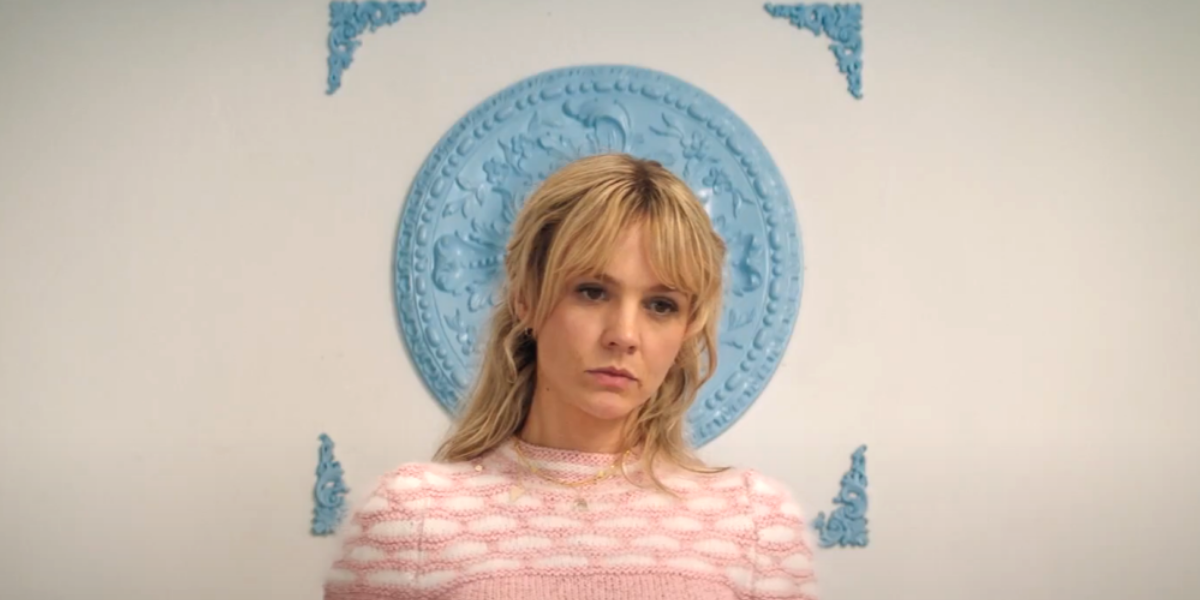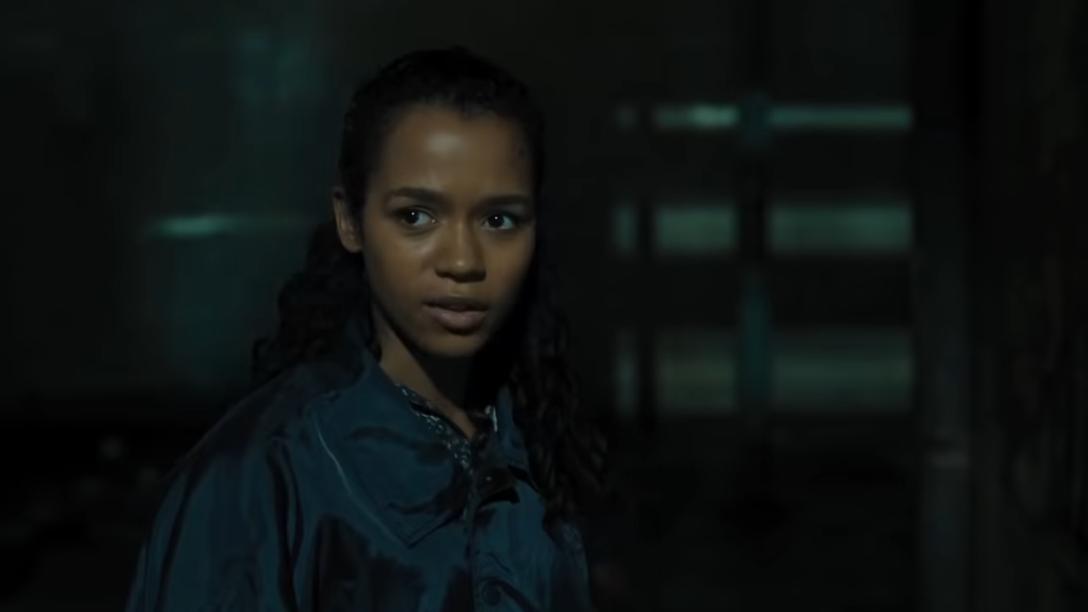these are there stories: promising young woman and its case for rape-revenge films

CONTENT WARNING: now, before i begin this post, i am going to let you know that there is a bit of talk of a few heavy topics including, rape and sexual assault. if you're not into all of that, please stray away from this post. otherwise, read on.
however, what i didn't think about during my class discussion is that regardless of the fact that people may find these acts abhorrent, they still happen. some people refuse to acknowledge that rape is a crime and more than often, rapists are not held accountable for their actions. people know that murder and theft is bad, but you don't see police officers asking survivors of attempted murder about what they were wearing or how much they were drinking during the time of their attack. they're not asking someone who's been robbed why they were out so late. both of which were questions people asked me after i confided in them that i was assaulted.
people know that rape is bad, but it still happens every single day and there are so many real-world people with excuses about why it happens, which is why i began to question my opinion about rape-revenge films after i'd be assaulted. there are no excuses for rapists in rape-revenge films. there is only justice. like in this film. like in last house on the left. like ms.45. like in american mary, revenge or m.f.a, and most importantly, in emerald fennel's promising young woman (all of which were directed by women - yay!). in rape-revenge films there are clear heroes and villains. there are clear crimes and there are clear punishments for those crimes. there's never really a question of what these women are doing as much as it is a question of how far they will go in the name of justice, how many more people will they implicate and if they are taking care as to not get caught. moreover, all of these acts fits into a filmic formula that audiences are familiar with and moreover, can relate to as a forbidden fantasy of sorts due to the fact that things aren't so generally so cut and dried in reality.
but, what if they were? what would we, then, have to say about these kinds of films? and moreover, is there a good way to go about making these kinds of films when there hasn't been a cultural and systematic shift towards our reactions to real world survivors?
in her review of promising young woman, jourdain searles also asks this question to her readers: "if rape is a systemic issue with an entire culture designed to protect it, how fresh can a one-woman-against-the-world narrative actually be?" in the review she talks about how in promising young woman, cassie (carey mulligan) isn't trying to change the system because it had already failed her. it is also my belief, that this is, too, where the genre fails because in a majority of these films, the women are taking the law into their own hands because they, too, know that the system will fail them or maybe it already has, so there is really no point in trying to change it. in m.f.a, like cassie, noelle (francesca eastwood) has a similar reaction when she tries to change the system peacefully by joining coalition of women who use hashtags to advocate for survivors and push universities to give out color-changing nail polish to their female students. noelle goes off on the women in the club, stating:
"what if we're not prepared? what if we have a drink? what if we wear high heels and we didn't learn taekwondo? what if forgot our rape whistle at home or we didn't paint our nails with color-changing nail polish to check if our drink is drugged? then we just get raped?"
to which they tell her, "at least we're doing something” and noelle goes off to become a vigilante. sure, its helpful, but its a noticeable element in rape-revenge films by women that the survivors question the system and ask both themselves and the audience if what the systems present as a solution them is enough. this isn't to say that all rape-revenge films need to be questioning rape as a systemic issue, but i think its largely important to think about why they don't and if that's something to discuss.
in the case of promising young woman, it is a film that attempts to reinvent the genre by tackling the issue of rape culture by as searles states, it falls short by ditching those aspects to stick to elements that fans of the genre would be familiar with - namely by way of its ending. moreover, the kind of ending that revels in the self-imposed and often short lived victories of the main character. while i won't be spoiling the ending of promising young woman, i think the film gives cassie's character more agency than we're accustomed to seeing in these films. the film is preoccupied not with cassie's actions, but in how far she is willing to go and what that will do for her. it clearly states cassie's plan for revenge is not based in blind rage alone and dedicates time to the shift in her identity as she becomes more engaged with her plans for justice. cassies cares about what could happens to her, yet she accepts that things could go poorly and thus, prepares herself for that. whether or not we agree with what happens, its a decision that cassie consiously makes for herself, so we don't need to agree with it as much as we wonder if it was worth what happens to her.
i'm still juggling this myself, but i do also, again, wonder whether there's a better answer for this when we're also still actively fighting to end rape culture. take law and order:svu, for example. if you think about it, the show functions a bit like a rape-revenge film in terms of its ethics. there are, again, clear heroes and villians in terms of the crimes presented in them. survivors are still the hereos and are met (for the most part) with compassion and validity. rapists are the villians and met with (again, for the most part) condemnation. instead of the survivor taking justice into their own hands, we follow them as they attempt to work their way through the criminal justic system, which acts as a friend to them until the final verdict. sometimes sentences are granted and sometimes they are not, which, unlike the fantasy of rape-revenge films, is the aspect that actually reflect the current state of our culture.
on the newest episode of the show titled "the long arm of the witness", the court proceedings went quite differently that i expected. typically, you can tell whether or not the rapist is going to jail. in this case, i truly believed the man was going to get off easy because they made it a point to emphasize that the key witnesses were refusing to tesify and that without them, he would be found not guilty. as usual though, things turn around and he ends up taking a plea deal. however, in the last few minutes of the episode, the judge asks if the defense was satisfied with that. the survivors and their atternoy state that they are, but the judge states that she isn't and actually sentences him to jail, which, of course, delighted everyone, including me. however, as with the ending of these rape-revenge films, its a short lived celebration because that one decision does very little to change the entire culture. while we can hope that case can act as an example for the kinds of changes that need to happen, the key word in that statement is: hope. the reason you don't see many films about people seeking justice through the criminal justice system is because it is unlikely to happen as rape is unfortantely an easy crime to get away with. for now, as a society, the only comfort for many suvivors, like myself, is being able to watch films like m.f.a, promising young woman and even i spit on your grave, because it allows us to exist in a world where people are actually held accountable for their crimes and for that, its what makes these films worth discussing.



